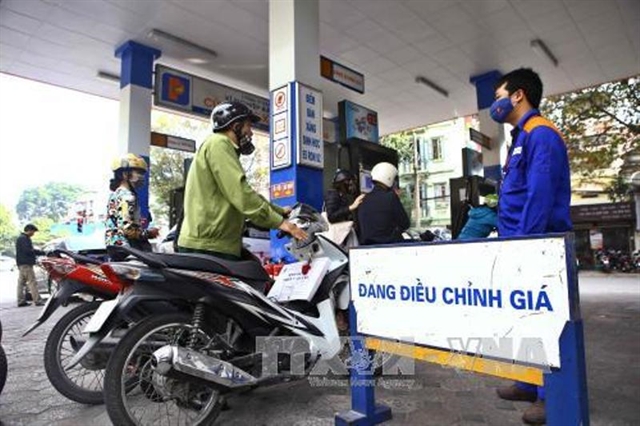The Ministry of Industry and Trade (MoIT) has proposed a 35 per cent cap on foreign investment in local oil and petrol businesses, but said it was open to scrapping the regulation.

The Ministry of Industry and Trade (MoIT) has proposed a 35 per cent cap on foreign investment in local oil and petrol businesses, but said it was open to scrapping the regulation.
The proposal is part of the draft revision and supplement of several articles in Government Decree No 83/2014/ND-CP on petrol and oil trading, which currently does not regulate a cap on foreign investment in the sector.
The ministry said 24 out of 25 comments from Government members approved the draft decree with the 35 per cent cap, while one disagreed.
The MoIT said foreign investment into the local petrol and oil market has caused controversy over the years and the Ministries of Public Security, Planning and Investment, and Finance have long had concerns about energy security, legality and the intrinsic benefits of investment from foreign firms.
The MoIT said despite these concerns, several firms already have sizeable foreign ownership, including Petrolimex (20 per cent owned by foreign investors), PVOil (35 per cent) and BSR (49 per cent) through privatisation, capital mobilisation and receiving approval from the Prime Minister. All the above firms have operated stably.
Foreign investors have contributed to a significant improvement in governance and transparency in financial statements, improving efficiency and competitiveness, while helping businesses increase their value, the MoIT said.
According to the ministry, foreign investors have abided by Vietnamese laws and regulations in the sector, but a lack of specific regulations on the shareholding ratios of foreign investors has caused confusion among domestic firms and regulators when discussing investment and capital increases.
The issue has even caused a lack of consistency in the shareholding rate when listing on the stock exchange.
In addition to the State-owned enterprises that have been permitted to sell stakes to foreign investors by the PM upon privatisation, there are thousands of listed petroleum companies that wish to attract foreign investors. Foreign businesses are also interested in their stocks but face difficulties due to the lack of clear and specific regulations.
These issues prompted the draft revision of the decree and the ministry is in favour of the 35 per cent cap.
“The proposal to open the petroleum market stems from the needs of domestic petroleum businesses, not from foreign enterprises,” said the MoIT, adding that many countries have opened their petroleum markets such as China, Singapore, Thailand and Japan.
The ministry said petroleum enterprises, regardless of economic sector, when doing business in Viet Nam, must comply with the conditions and provisions of this decree and other documents.
Any stake transfer is an indirect investment activity that does not allow enterprises to directly exercise the right to distribute petroleum in Viet Nam. The exercise of the right to distribute petroleum in the country is only possible when a foreign enterprise establishes a branch in Viet Nam. — VNS





